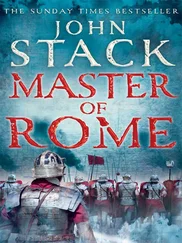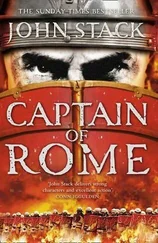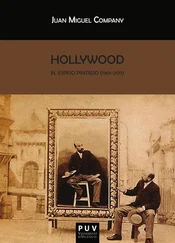‘Senior Consul,’ one began, ‘we were not expecting you for at least another week. What news?’
‘Patience, Fabius,’ Scipio said with a smile, ‘I have travelled far these past two days and I wish to bathe and change before speaking to the Senate on a matter of grave import. Please inform those available that I will return in the afternoon,’ he added, knowing that everyone would ensure they were available to hear any news first hand.
‘Yes, Senior Consul,’ Fabius replied, the junior senator, a recently elected magistrate, barely able to contain his curiosity.
Fabius and the others turned away from the senior consul and began to climb the steps of the Curia, Scipio noting with satisfaction that they were already in deep conversation as to the nature of the ‘matter of grave import’ that he had alluded to. He knew it was only a matter of time before the whole Senate would be discussing the yet-to-be-disclosed news, their curiosity fermenting within the confines of the Senate building. Scipio would delay his return to the Curia until the last possible moment, allowing the tension to mount to the tautness of a legionary’s bow. Only then would he announce the news of the Carthaginian blockade and the threat to the Sicilian campaign. The timing would be perfect for declaring his proposal, presenting the senators with the only possible solution, his solution, without affording his enemies the opportunity to determine a counterproposal. It would be yet another one of his triumphs.
Gaius Duilius, junior consul of the Roman Senate, sat comfortably in the first row of the three-tiered inner chamber of the Curia. He was a novus homo , a new man, the first in his family line to be elected to the Senate. It was an achievement of which Duilius was extremely proud – and with good reason, for he was a self-made man who, from humble beginnings fifteen years before, had risen to the second most powerful position in Rome. When Duilius was nineteen, his parents and two younger sisters had succumbed to one of the many plagues that frequently swept the countryside around Rome, and he found himself the sole surviving inhabitant of the modest family villa that sat astride the Via Appia. This vital artery, the main road to the distant city of Brindisi, in the southeast of the country, was a thriving thoroughfare with a constant flow of traders passing the estate entrance on their way to the capital four miles beyond.
Duilius became master of his own estate and, free to make his own decisions, he gambled everything in a bid to capitalize on the estate’s ideal location. Using his land as collateral, he borrowed heavily from the usurers of Rome, who were only too eager to deal with him, confident that the young man would quickly default on the loans, allowing them to seize the estate. Duilius used the money to buy slaves and seed and quickly turned every arable inch of his land over to the growing of fresh produce. The markets of Rome had always been supplied by the outlying farmers, small land-holders, many of whom concentrated on individual seasonal crops; although the farmers worked in isolation, they were also careful not to directly compete with their neighbours. For years prices had remained relatively stable with little in the way of competition. Duilius planned to change that system.
In his first season, by using his entire estate, including the landscaped gardens that had been his mother’s pride, Duilius had more land under tillage than four average-size farms. He disregarded the delicate balance maintained by the other farmers and planted every commercial crop he could, utilizing a two-tier crop-rotation method that ensured his land was constantly producing. As his first crop was being harvested, Duilius propositioned every passing trader with an offer they could not decline. He sold them fresh produce below market price, taking advantage of the larger volumes he could command, leaving the traders free to transport the produce the mere four miles to the city, where they were free to profit from the margin in the city markets.
Within the first year Duilius was able to purchase his own wagons to transport his produce to the city, and within two more he had paid off his debts in full. Not content with the success of his own estate, he quickly borrowed even greater amounts and bought the two estates adjoining his own, paying the owners above market value, once again turning every inch of arable land over to production. It was then that Duilius got his first taste of the power that money could wield.
With the price of fresh produce falling in the market due to the unexpected competition, the farmers fought back by banding together to lobby the Senate to re-establish the status quo. Duilius had used his new-found wealth to ensure the ensuing vote in the Senate went in his favour, learning two valuable lessons in the process that had stayed with him ever since. The first was the power of money in guaranteeing the loyalty of unscrupulous men. The second was the value of information. Before the vote ever took place, Duilius knew exactly who he controlled, who he did not but, more importantly, who he could not control and who he dared not approach. Over time Duilius refined the dual revelations into one principle: ‘Money is only the method, information is the true wealth.’
Now, fifteen years after the death of his parents, Duilius owned the largest single tract of land straddling the city. Many other estates had tried to reproduce his methodology and achievements, but few had succeeded, and none to the same degree. Produce from his estates supplied the city with eighty per cent of its fresh vegetables and fruit, with all of the small farmers driven out of business by the cutthroat competition. These men had seen their livelihoods disappear almost overnight, and the cries of their hungry children had driven their attempts to assassinate Duilius on three occasions over the years. Each failed attempt brought terrible retribution from the Senate where Duilius held a seat, his position easily obtained years before from the votes of a grateful populace of Rome who craved the lower prices in the markets. The senator had used each occasion to further crush the farmers, and both guilty and innocent were forced off their land as punishment in the name of the State, their lands immediately put on the open market where Duilius snatched them up for half their true value.
Six months before, using the fortune that had propelled him into the realms of Rome’s elite, he had engineered a nomination to the position of senior consul from one of the sycophantic junior members of the Senate. The vote had been close and costly, but in the end he had been narrowly defeated by Gnaeus Cornelius Scipio, one of the wealthiest men in Rome and one whom Duilius knew he could never control. The defeat had been bitter for Duilius, his first setback since setting out over fifteen years before, and the enmity between the two men had now divided the Senate into three segments: those firmly for Duilius, those firmly for Scipio, and a malleable majority in the centre whose votes were surreptitiously sold to the highest bidder.
Lucius Manlius Vulso Longus, a recently elected senator, quickly adjusted his gaze to the gloomy interior and rapidly searched the room for the man whose acceptance he craved more than anything in the world. He spotted Duilius and crossed the floor, his appearance putting an end to the honeyed words that Duilius had been speaking to a senator beside him, a senator whose vote Duilius had purchased many times. The junior consul looked up irritably.
‘What is it, Longus?’ he asked brusquely.
‘Scipio has returned!’ the young man said, his impatience to be the first to inform Duilius causing him to blurt out the words.
‘What…? When?’ Duilius said, standing, his voice loud in the muted chamber, the seated senator beside him forgotten.
Читать дальше
Конец ознакомительного отрывка
Купить книгу











